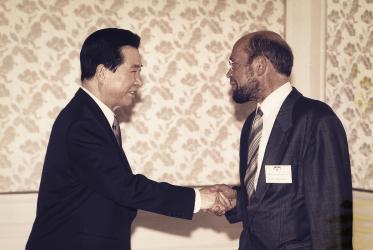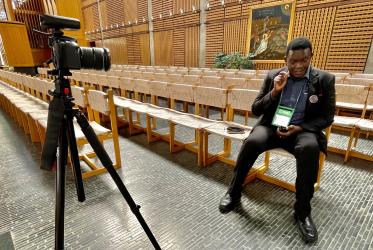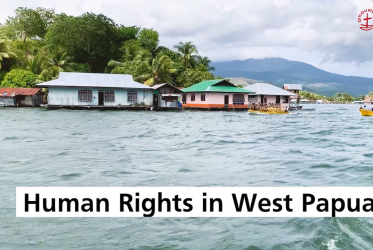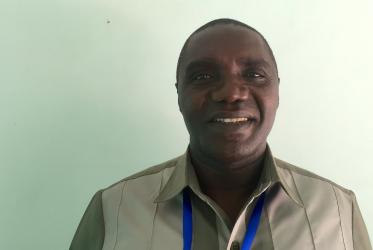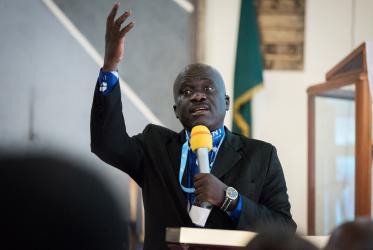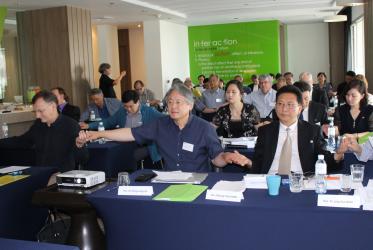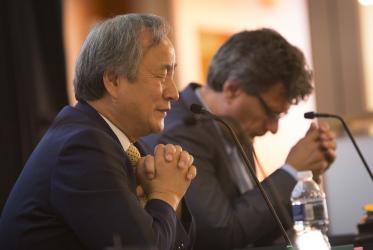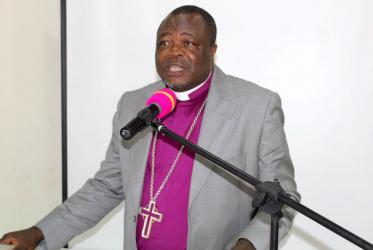Displaying 1 - 19 of 19
WCC video interview describes human rights crisis in West Papua
13 January 2022
Peace and unity on the Korean Peninsula matters globally
25 February 2021
Bishop Hee-Soo Jung: “Prayer is a radical action”
11 December 2020
Cameroon conference on peace empowers religious leaders
30 November 2020
An interview with the Ethiopian Patriarch, Abune Matthias
14 February 2017

